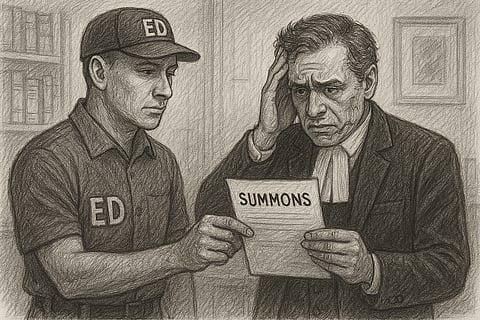
- Latest Legal News
- News
- Dealstreet
- Viewpoint
- Columns
- Interviews
- Law School
- Legal Jobs
- हिंदी
- ಕನ್ನಡ

When the Enforcement Directorate (ED), India’s anti-money laundering agency, sent notices to Senior Advocates Arvind Datar and Pratap Venugopal - two of the country’s most respected legal voices - it triggered more than professional discomfort; it set off constitutional alarms. These weren't merely summons. They were a signal.